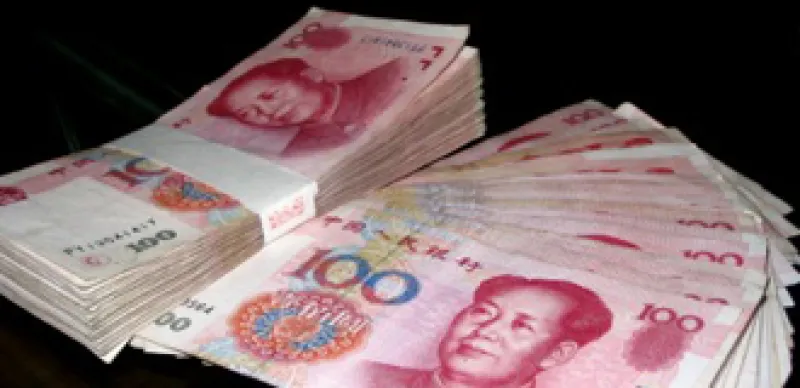China’s relationship to the global bond market has been pretty simple: You issue, we buy. The country has used its reserves to build massive holdings of U.S. Treasuries, and more recently diversified into agencies, corporates and euro-denominated paper. Now, Beijing looks set to play both sides of the market.
The Ministry of Finance last month sold 6 billion yuan ($878 million) worth of government bonds in Hong Kong, marking the first time that the People’s Republic had issued debt outside the mainland. It’s unlikely to be the last, given the government’s desire to increase the international use of the renminbi, the formal name of the currency whose unit is the yuan.
"This bond issue is a milestone," says Yifan Hu, the Hong Kong–based global chief economist for Citic Securities, China’s largest brokerage firm by market capitalization. "It signifies China’s intention to make Hong Kong the major offshore center for renminbi settlement and trading."
China has been looking to increase the external use of its currency, reflecting the country’s growing economic might and officials’ concerns about the stability of the dollar. In July, Beijing announced that it would allow 400 exporters based in Guangdong province to accept payment for their goods in yuan, rather than dollars. The government has also arranged $95 billion worth of yuan swap agreements with six countries in the past year to promote trade settlement in yuan.
State-owned institutions such as the Bank of China and the Export-Import Bank of China have issued yuan-denominated bonds in Hong Kong since 2007 at the encouragement of Beijing, but the latest offering was the first by the government.It consists of two-year bonds paying interest of 2.25 percent, three-year bonds at 2.7 percent and five-year bonds at 3.3 percent. Comparable government bonds on the domestic Chinese market were yielding 1.82 percent, 2.31 percent and 2.94 percent, respectively, at the time of the offering.
Bank of China and Bank of Communications acted as lead managers on the issue.
The market for yuan-denominated bonds in Hong Kong "will develop very quickly," Vice Finance Minister Li Yong said in a statement. "I believe the safer and more stable yuan bonds will be popular among Hong Kong investors," he added.
China, which ran a government deficit of 2 percent of gross domestic product in 2008, made 30 domestic bond issues raising the equivalent of $110 billion that year, according to data provider Dealogic. This year it issued 52 domestic bonds worth $167 billion as of October 15.
Qian Wang, a senior China economist with J.P. Morgan in Hong Kong, believes the government could issue as much as 100 billion yuan of bonds in Hong Kong in the not too distant future. "There is great potential for renminbi-denominated assets and deposits in Hong Kong going forward, which will further sharpen Hong Kong’s position as the key renminbi offshore center in the region," he says.
Tomo Kinoshita, deputy head of economics for non-Japan Asia at Nomura International (Hong Kong), says the government bond issue will help create a sizable yuan liquidity pool in Hong Kong, leading to yuan forward and swap transactions.
"Currency hedging is a key factor in ensuring the wide take-up of the renminbi settlement system, in our view, and an essential step if renminbi is to become an internationalized currency," he says. "Over time the variety of renminbi products is likely to grow in both the banking and securities businesses."






